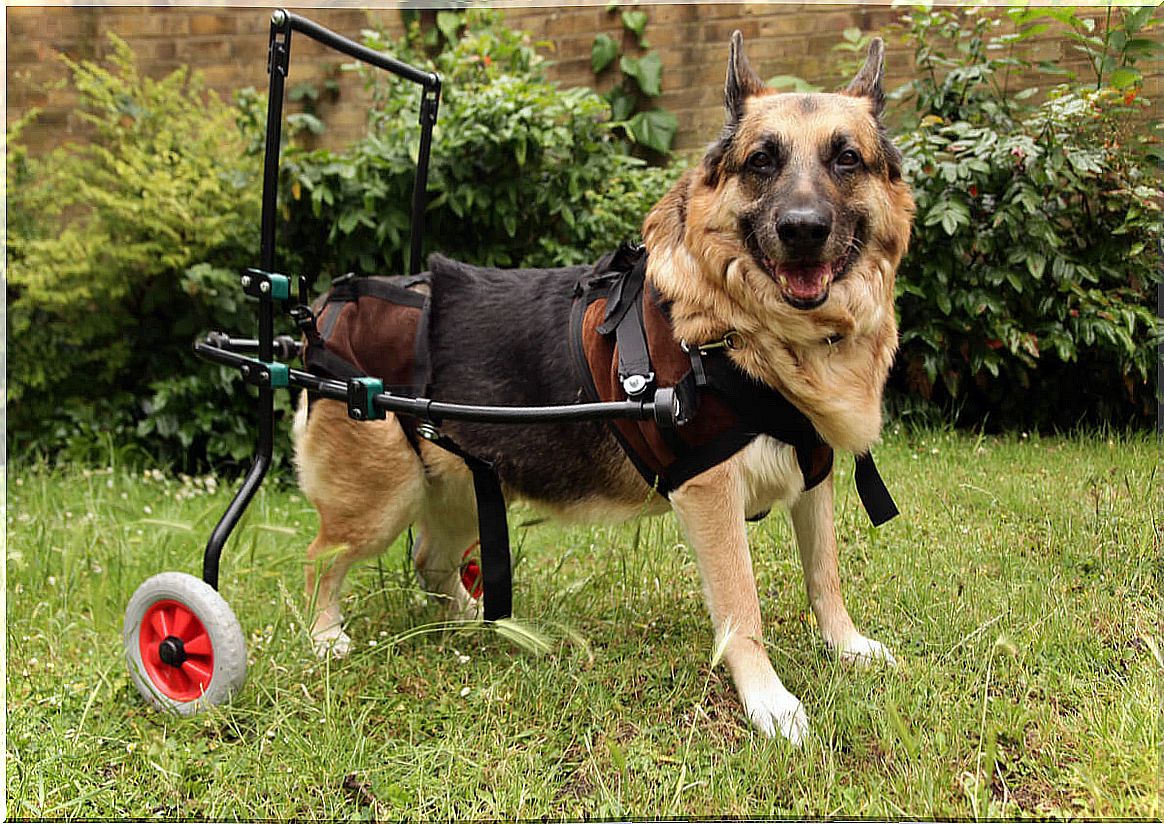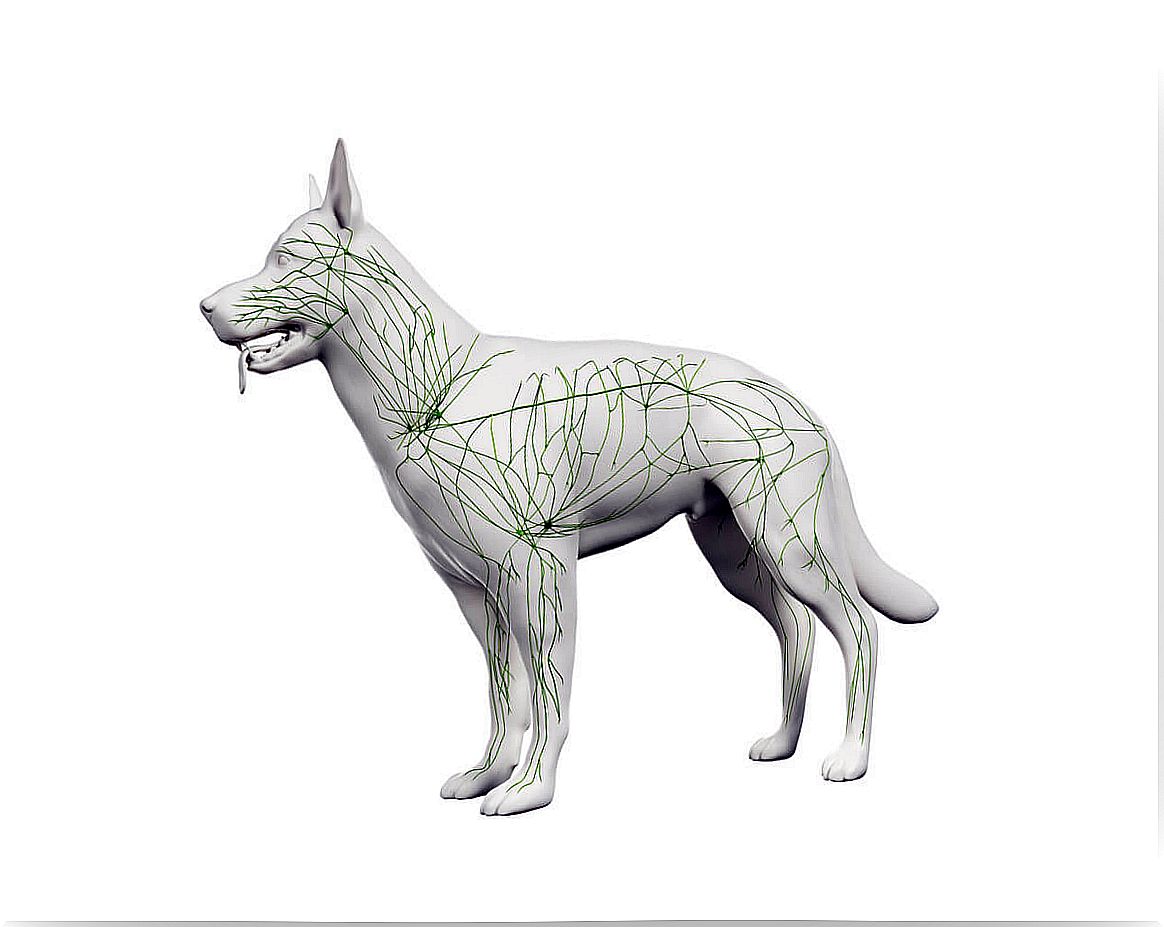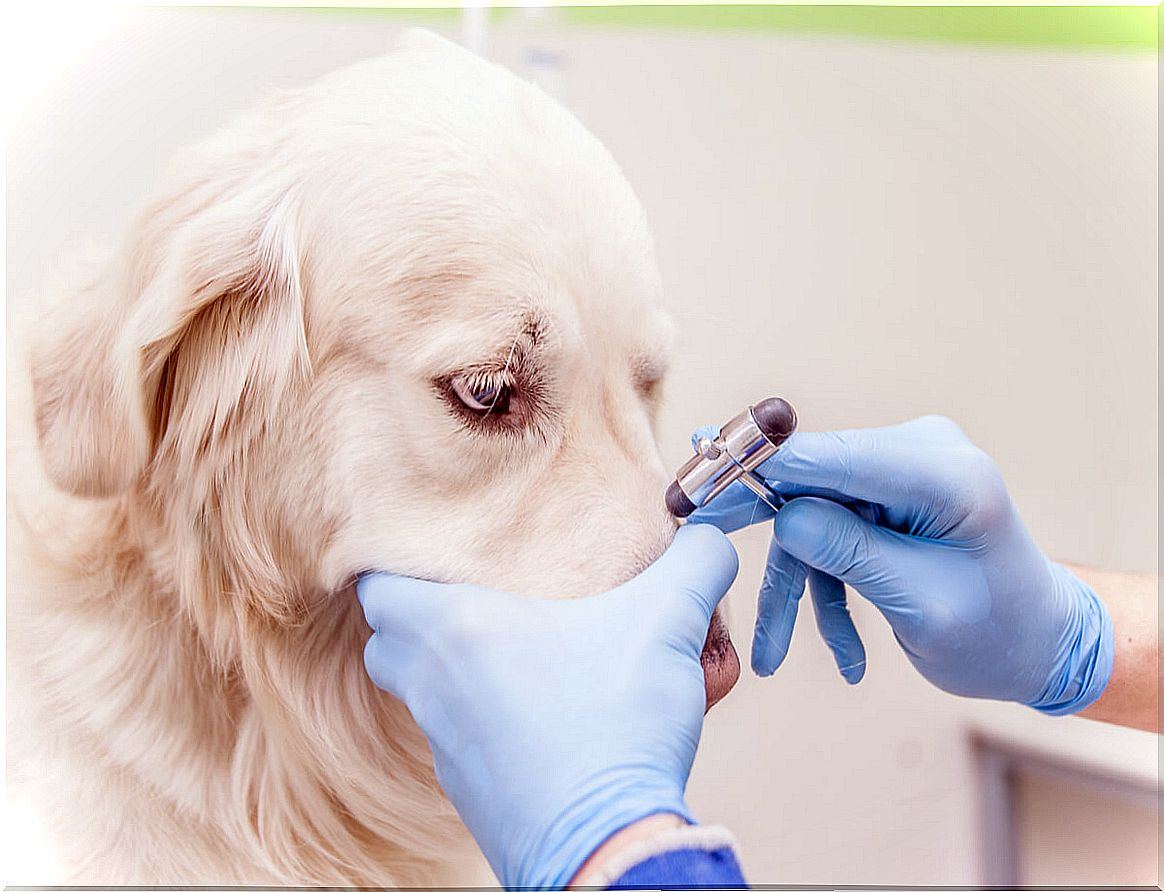Autoimmune Diseases In Dogs: What To Know

Autoimmune diseases can affect both people and pets. Although we all have a vague idea of the immune system, it is common not to fully understand how it works.
Thus, we may not be able to describe the location of your organs or visualize their function. This is because the cells of the immune system are scattered throughout the lymph nodes throughout the body . They are also in the spleen, thymus, lungs, intestines, and every organ in the body. These cells patrol the body, circulating in the bloodstream.
Immune failures
In autoimmune diseases, the immune system mistakenly attacks the body’s own tissues. Immune cells are unable to distinguish normal healthy cells in the body from foreign ones and therefore try to destroy them.
The cause of this “error” is not well understood. Thus, the disease can affect only one system or multiple body systems. In this sense, the skin, connective tissues, nerves and muscles can be affected. Also the endocrine system (the system that controls hormones and other chemicals), joints, red blood cells, and the digestive system.

What factors are associated with the suffering of autoimmune diseases in dogs?
At present, science cannot fully explain what causes these diseases. However, in many cases the individual’s genetics are suspected. In this sense, it is accepted that there is a higher incidence of this type of disease in some breeds of dogs.
For example, lymphocytic thyroiditis occurs most often in Great Danes, Golden Retrievers, Cocker Spaniels, Bobtails, and Beagles (to name a few). It should be noted that some of these breeds are susceptible to more than one immune disorder, such as the bobtail , which is also prone to autoimmune hemolytic anemia.
In addition, other triggers such as exposure to certain medications (antibiotics), chronic or tick-borne infections, or cancers have been reported. Other chronic infections such as heart valve infections and vertebral (spinal cord) infections can also cause them.
Given the association between antibiotics and these diseases, many studies point to an imbalance of the gut microbiome as a probable cause. Finally, although a definitive link has not been established, vaccines have also been implicated in the suffering of these types of diseases.
Types of canine autoimmune diseases
There is currently a wide spectrum of immune system disorders in dogs. However, in veterinary practice the following are recorded as the most common:
- Arthritis : affects the joints with pain and reduced mobility.
- Immune-mediated thrombocytopenia : produced by destruction of platelets
- Sicca keratoconjunctivitis : “dry eye” condition.
- Inflammatory brain disease: particularly affects toy breed dogs .
- Pemphigus foliaceus : the most common of several diseases associated with immune disorders of the skin.
- Inflammatory Bowel Disease : produces chronic inflammation of the intestinal mucosa.
In all cases, early recognition is extremely important. If left untreated, the complications of autoimmune diseases are serious and involvement of multiple systems is common.
What symptoms can alert you to an immune system disorder?
It is important to keep in mind that the dog must be constantly checked. Look for small bleeding sites on the skin and gums, called petechiae. It is also necessary to detect ulcerations on the legs, skin, eyes and mouth. The appearance of areas of alopecia and scabs in any body area should be recorded.
It should be noted that some great allies for the early detection of injuries are dog groomers. They are often the ones who detect bruised skin, bleeding gums, or bloody diarrhea while shaving. There are many cases detected by these professionals.
Every day it is important to watch for blood in urine and stool, or a nose that is bleeding. Also red, sore eyes and thick mucus-like eye discharge.
Of course, changes in habits such as loss of appetite, the presence of lethargy, fatigue and fever are other alerts to take into account. There may also be significant symptoms such as seizures, blindness, loss of balance or coordination, and tremors.
How is the diagnosis and management of immune disorders established?
First, it is necessary to take detailed medical histories, analyze blood and urine, in addition to taking tissue biopsy samples. X-rays, ultrasounds, and MRIs are also done. All of this is intended to establish a preferential diagnosis.
At the same time, the vet will likely prescribe medications to help the dog fight any infection, virus or allergy that may be causing symptoms. In general, steroids like prednisone are the first line of treatment.
The case for vaccination
We cannot lose sight of the controversy surrounding vaccination booster injections in the onset of autoimmune diseases in dogs. Of course, vaccines, by stimulating the immune system, can have a negative effect on a dog with autoimmune diseases.
Thus, experts recommend keeping vaccines to a minimum or stopping them. It is common to have a blood antibody titer test. This test checks if the antibody levels are sufficient to protect against canine diseases, avoiding boosting.
The cases that do not remit
It is important to know that, although some autoimmune diseases remit without ever relapse, others can last a lifetime. Thus, for these serious illnesses that do not respond to treatment , a method called therapeutic plasma exchange (TPE) can be used. This treatment extracts the patient’s blood and filters it to remove the antibodies that cause so much damage.
In addition, given the role of the gut microbiome, beneficial bacteria that the dog’s microbiome was missing can be supplied. These are intestinal restoration supplements for dogs. These capsules contain carefully selected fecal material (yes, excrement) from healthy donor dogs. A procedure is called fecal microbiota transplant.

Once a pet is diagnosed with an immune disorder, watch for relapses . It is important to get regular and thorough health exams and also to report any changes in his activity level or physical condition immediately to the vet.
For guardians, the most important recommendation would be to know what is normal for the dog. Take 10 minutes a day to really examine it, including the gums. If you find something wrong, act fast.









